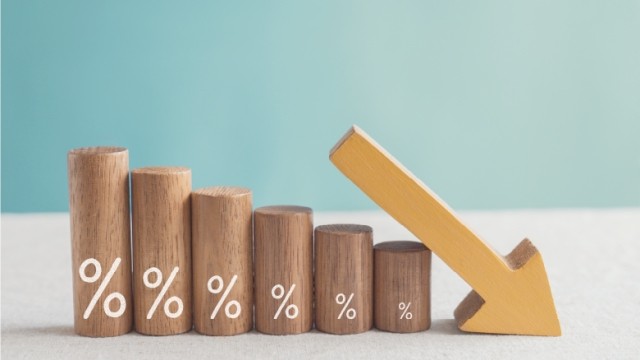APR and APY: How the economy affects interest rates and yields
What will the economy do next?
We all want to know the answer, but no one can predict the future with any accuracy. What you can do, however, is pay attention to interest rates. They may not tell you everything, but they can indicate what’s happening with the economy—and alert you when it’s time to adjust your financial strategy.
Put simply, interest is the cost of borrowing money. When you take out a loan, the interest rate determines how much extra you’ll end up paying on top of your initial loan balance. When you deposit money into a savings or retirement account, the interest rate influences how fast your money will grow.
Interest rates are more powerful than you might think. Most people only worry about them when they’re buying a home or applying for a credit card. But changes in interest rates can affect everything from your retirement portfolio to your savings account. Not only are interest rates affected by fluctuations in the financial market, but they can also be manipulated to help keep the economy afloat.
Economy and interest rates: A complicated relationship
How does the economy affect interest rates? For starters, think of the economy as a busy road, with each consumer driving their own financial vehicle. The goal of the Federal Reserve is to help regulate the economic traffic so it moves at a steady pace—not too fast and not too slow. It does this by using interest rates as traffic signals.
When the economy gets sluggish and congested, lowering federal interest rates acts as a green light, encouraging consumers to spend more money, which in turn helps get the economy moving again. If the economy starts racing too fast, raising the interest rates acts as a red light, urging consumers to put the brakes on spending.
Throughout the pandemic, the Federal Reserve has lowered interest rates to keep the economy humming along. So what does this mean for you?
How interest rates affect your finances
Depending on your financial situation, a drop in interest rates can affect your money in several different ways. For starters, lower interest means it costs less to take out a loan. With loan rates at near-record lows, it’s a great time to buy a home, finance a car or open a home equity line of credit. You can lock in a lower annual percentage rate (APR) and pay significantly less interest over the life of your loan. It’s also a good time to pay off some credit card debt, since more of your monthly payment will go toward the balance rather than interest.
The downside is that lower interest rates can also result in a lower annual percentage yield (APY) on your investments. Whenever you deposit money into a savings account or contribute to a retirement investment account, you’re essentially loaning money to the bank, which pays you in the form of dividends. Falling interest rates can mean your savings and investment accounts will grow more slowly for a while.
Since everyone’s financial situation is different, only you can determine how the lower interest rates will impact your money. The important thing is that by paying attention to interest rate fluctuations, you can keep a finger on the economy’s pulse and make financial course corrections to maximize your money’s potential.
Our team is here to support you and your financial wellness. Find out how our Investment Services team can help adjust your financial strategy.


